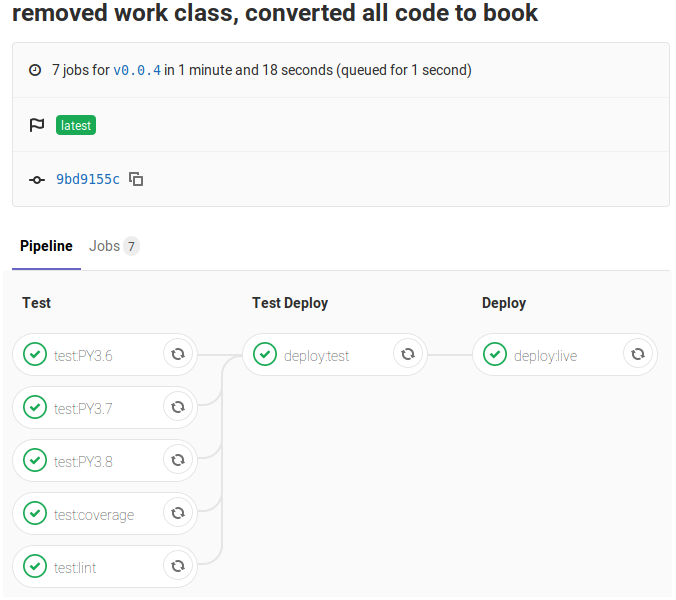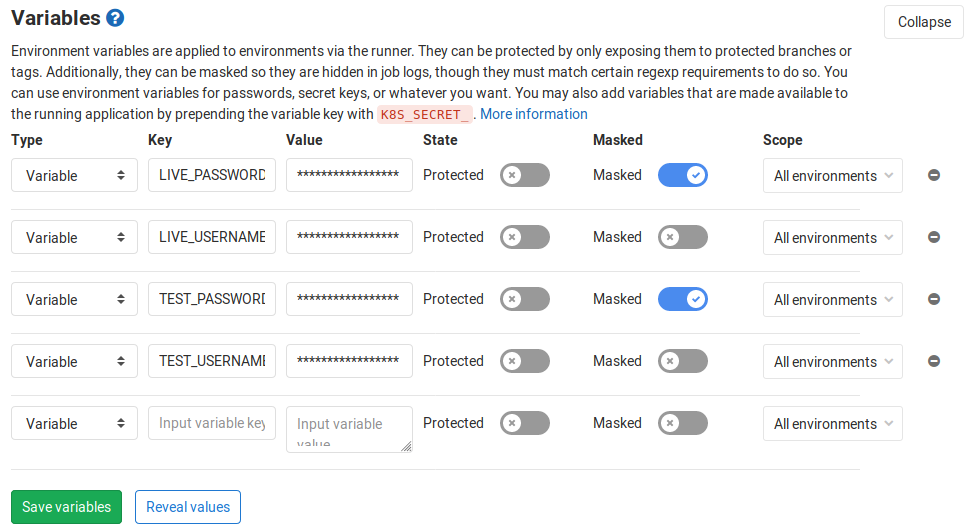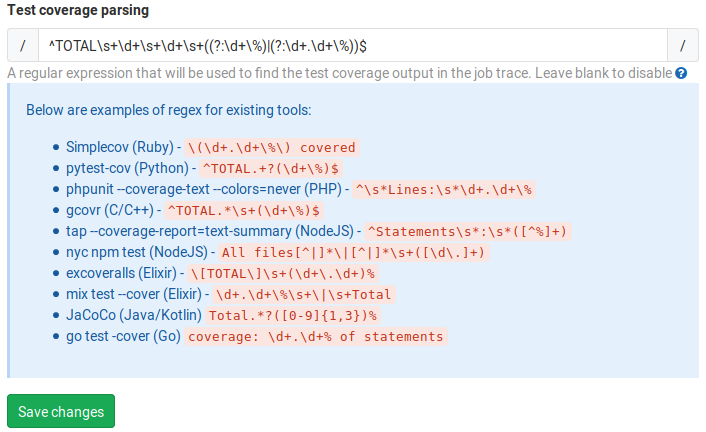A short post about how I use GitLab CI/CD to automagically test and deploy to PyPi .
Logically the yml consists of 3 parts which coincides with the stage, each stage contains jobs;
- test
- test-deploy
- deploy
If one of the jobs fail, the pipeline is stopped and the deployment is canceled. This should prevent me from releasing faulty code.
In practice we split up the repeating parts to keep the yml DRY
.
In yml we can do .test: &test_template which means we use the content of .test as a variable, a copy paste if you will, within the yml.
Later on, the paste part, we call on the test_template name and “paste” it into another section, optionally overriding parts.
To do this we use <<: *test_template were it should be “pasted”.
Side note: properties within a yml are order based, if you use
<<: *test_templatefirst your variable,stagefor example will override the value ofstagefrom thetest_template. If you declare yourstagefirst the template will override it. Take a look atdeploy_templateanddeploy:test:for an example.
stages:
- test
- test-deploy
- deploy
cache:
paths:
- ~/.cache/pip/
.test: &test_template
stage: test
before_script:
- pip install -r requirements.txt
script:
- python -m unittest discover
test:PY3.6:
<<: *test_template
image: python:3.6
test:PY3.7:
<<: *test_template
image: python:3.7
test:PY3.8:
<<: *test_template
image: python:3.8
test:coverage:
stage: test
image: python:3.7
before_script:
- pip install -r requirements.txt
- pip install coverage
script:
- coverage run --omit="/*venv*,/*tests*" -m unittest discover
- coverage report -m
test:lint:
stage: test
image: python:3.7
before_script:
- pip install pylint
- pip install -r requirements.txt
script:
- pylint --max-line-length=120 --exit-zero solc
.deploy: &deploy_template
stage: deploy
image: python:3.7
before_script:
- pip install -r requirements.txt
- pip install setuptools wheel twine
- python setup.py sdist bdist_wheel
deploy:test:
<<: *deploy_template
stage: test-deploy
variables:
TWINE_USERNAME: $TEST_USERNAME
TWINE_PASSWORD: $TEST_PASSWORD
script:
- twine upload --repository-url https://test.pypi.org/legacy/ dist/*
only:
- tags
deploy:live:
<<: *deploy_template
variables:
TWINE_USERNAME: $LIVE_USERNAME
TWINE_PASSWORD: $LIVE_PASSWORD
script:
- twine upload dist/*
only:
- tags
Pipeline
The above yml will result in a pipeline as displayed below, the 3 stages clearly split into columns. The testing of the deployment and the actual deployment are only ran on tags.

Keeping secrets
To publish to PyPi you need an account with username and password but you do not want these somewhere hardcoded and embeded in git for everyone to see. To handle these variable we get them, on run time, from the environment, in this case via the variables option from GitLab.
Note: We marked the passwords as masked to prevent them from showing up in the CI/CD pipeline/jobs logs.

Coverage
In one of the jobs I check the coverage of the code, to get GitLab to check for the coverage we need to provide a regex to parse the output of the jobs.
We do not need to set a specific job to parse, as far as I know they are all parsed.
The regex I use, ^TOTAL\s+\d+\s+\d+\s+((?:\d+\%)|(?:\d+.\d+\%))$ is used for Python unittests.
